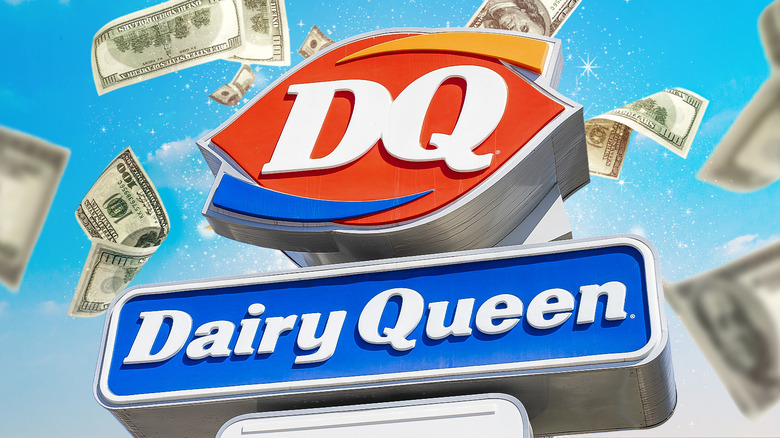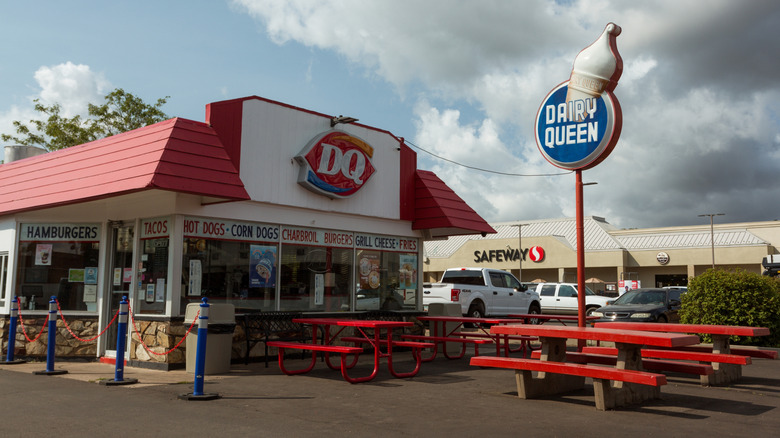How Much A Dairy Queen Franchise Owner Can Make In A Year
There's loving Dairy Queen so much that you learn how to make a Blizzard at home. And then there's recognizing its place as America's favorite chain restaurant and wanting to buy your own franchise. Both ideas come with the promise of reward; however, one reward is significantly more challenging to reap. Since it is possible to own a Dairy Queen franchise — and there currently are almost 2,000 DQ locations in the U.S. — it seems like it would be a prosperous endeavor.
That said, aside from asking a franchisee directly, it's nearly impossible to know exactly what their income looks like in a year. However, it seems from internet speculation, that around $300,000 net income per year (or more) can be expected for owners of locations that bring in around $1.2 million in revenue.
Dairy Queen isn't the only fast food chain that offers franchise opportunities. Popular chains like Jack in the Box and Chick-fil-A also have franchise options. And when you look at the possible net income and revenue from owning a franchise, investing in one can seem like a promising money move you won't regret. Nonetheless, the truth is that if franchising were truly that simple, there would be a lot more fast food restaurants in operation. But, as it turns out, owning a franchise can be a lot easier said than done.
The numbers involved in owning a Dairy Queen franchise
Before you can think of investing, it's worth understanding how much it costs to open a fast food franchise. In Dairy Queen's case specifically, the initial franchise fee is $45,000. But that's far from the only cost. In reality, starting a franchise can ultimately cost anywhere from $1,516,000 to $2,543,000 after the costs of construction, equipment, inventory, and initial operating expenses are calculated. Beyond that, to own a single location, prospective franchisees must also maintain at least $400,000 in liquid capital (or money on-hand) and have a net worth of $750,000. To make matters more challenging, these numbers tend to increase with the number of locations desired.
Other factors that influence the cost to run a franchise and potential revenue include the specific location, whether the franchise owner leases or purchases the property, and, of course, the current economic conditions. Regardless of revenue, Dairy Queen franchise owners need to pay a 4% royalty fee on gross sales, along with a minimum 5-6% advertising fee. All of these numbers eventually impact the annual revenue of a franchise owner. Although, considering the company started its franchise system the same year it was founded in 1940, it seems to be a path that plenty of business owners are happy to embark on.

